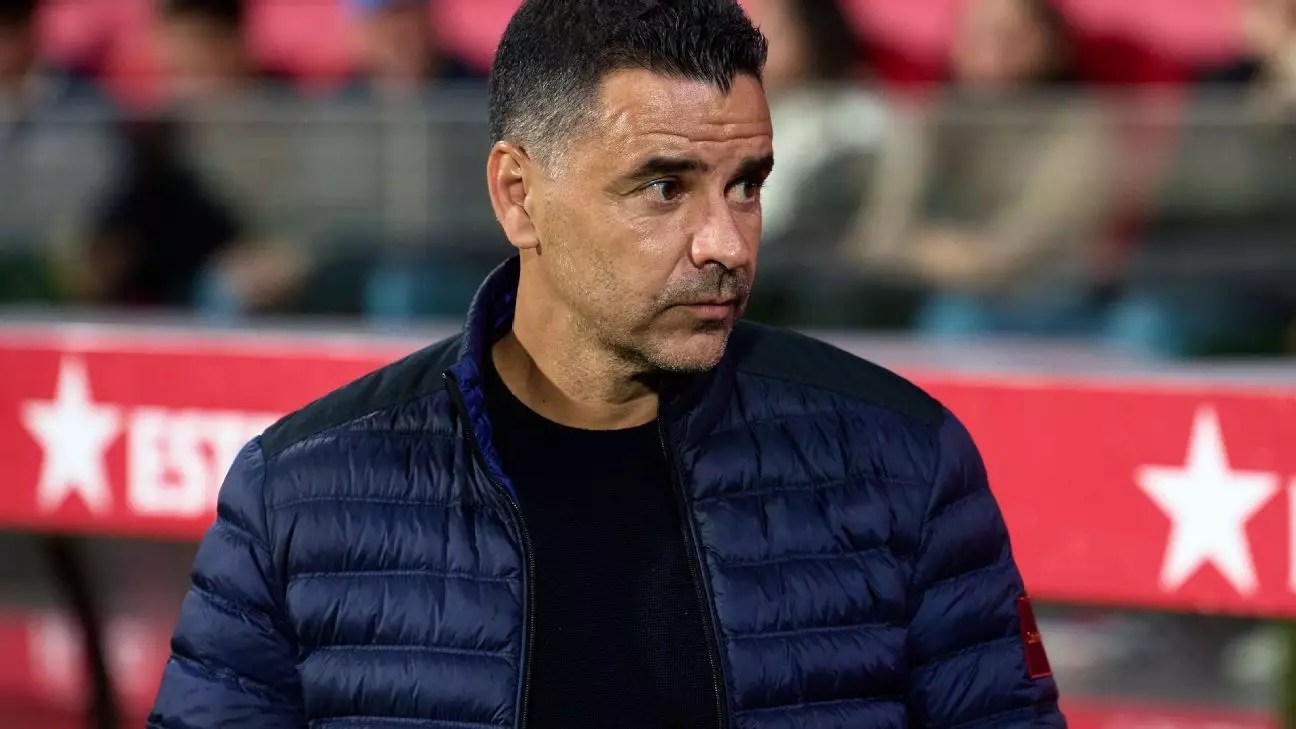The sudden news of Girona coach Míchel Sánchez being hospitalized has sent ripples of concern through both the team and its supporters. Scheduled to miss the important clash against Villarreal, the timing of this health issue could not be more precarious for Girona. With the club fighting to maintain its La Liga status after a disheartening run of 11 games without a win, Sánchez’s absence poses an additional layer of complexity to their already tumultuous season. Despite assurances from both the club and Sánchez that his condition is manageable and does not pose serious risks, the mental strain of this unforeseen situation cannot be underestimated.
Challenges of Leadership
Leadership in sports extends far beyond tactical acumen; it encompasses psychological endurance as well. In the case of Sánchez, this incident underscores the sometimes-overlooked human element within professional sports. Coaches are often viewed as unyielding figures, immune to the fatigue and stress that comes with high-stakes competition. However, Sánchez’s acknowledgment that he must slow down serves as a crucial reminder of the importance of health—both physical and mental—in an environment that often romanticizes relentless pursuit.
Sánchez’s sentiments of confidence in his team during his absence are commendable, but his situation also raises questions about the effectiveness of emergency plans in coaching structures. While he may be able to remain in contact with his players, the absence of a head coach during such a critical match can lead to confusion and a lack of cohesive strategy on the field. Girona’s management must evaluate its support mechanisms in such situations to ensure continuity in performance amidst leadership gaps.
The Importance of Upcoming Matches
As Girona gears up to face Villarreal, the pressure intensifies. With only four games remaining in the season, points are more critical than ever. Sánchez’s team needs to channel every ounce of determination to secure a win that could mean the difference between relegation and survival. Despite the encouraging 1-0 victory against Mallorca, the journey ahead is laden with challenges, including a visit to relegated Real Valladolid and encounters with the formidable Real Sociedad and Atlético Madrid.
The psychological barriers that come with maintaining form are compounded by the high stakes of each match. The players must exhibit not only their skills but also resilience in coping with the uncertainty stemming from their coach’s health. This scenario offers a unique opportunity for emerging leaders within the squad to step up—a chance for players to galvanize their performance and showcase unity during adversity.
A Community Rallying Together
In times of crisis, the impact on a collective’s spirit can be profound. Fans, players, and staff must all rally together, reinforcing the community’s strength. Girona supporters are known for their unwavering loyalty, and this situation can act as a catalyst for that communal bond to flourish. Just as the players aim to lift each other on the pitch, the broader fan base can create an atmosphere of encouragement, transforming anxiety into spirited support.
Ultimately, Girona’s current predicament is a test of endurance, not just for the players but for the entire club. With a coach sidelined due to health issues, success will hinge on adaptability, teamwork, and the unwavering spirit of its community. It is in these testing times that resilience shines brightest, revealing the true heart of the team as they battle for survival in La Liga.


Leave a Reply